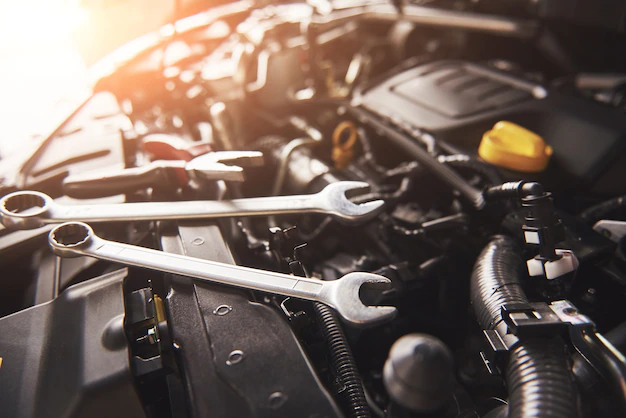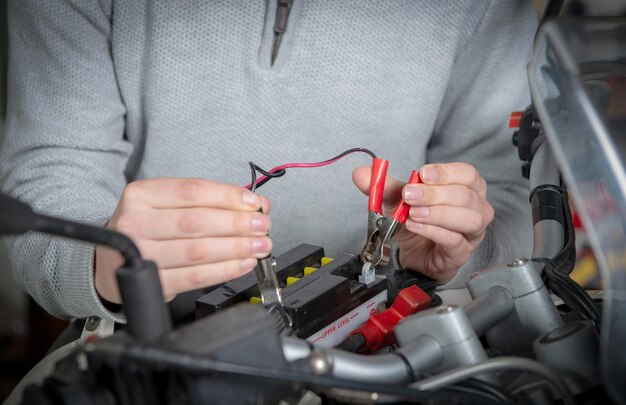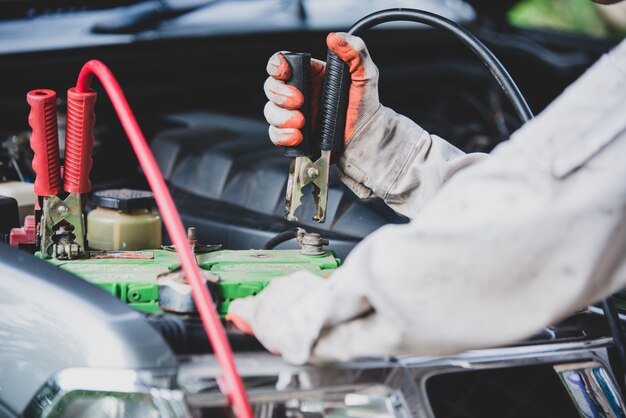When your car experiences electrical issues, it can be both frustrating and confusing. The electrical system in a modern vehicle is complex, powering everything from the engine to the infotainment system. Understanding the basics of auto electrical repair can help you diagnose common problems, know when to seek professional help, and even save money on repairs.
What is Auto Electrical Repair?
Auto electrical repair involves diagnosing and fixing issues in a vehicle’s electrical system. This system includes the battery, alternator, starter, wiring, and various electrical components like sensors, lights, and control modules. Any failure in these components can lead to problems ranging from a car that won’t start to malfunctioning accessories.
Common Auto Electrical Problems
Understanding common electrical issues can help you identify problems early. Some of the most frequent issues include:
1. Dead Battery
The battery is the heart of your car’s electrical system. If your car won’t start or the lights are dim, a dead or weak battery could be the culprit. Batteries generally last 3-5 years, but extreme weather and improper maintenance can shorten their lifespan.
2. Faulty Alternator
The alternator charges the battery and powers the electrical system when the engine is running. Symptoms of a failing alternator include dimming headlights, a burning smell, and a warning light on the dashboard.
3. Starter Problems
If your car makes a clicking sound but doesn’t start, the starter could be the issue. This component is responsible for cranking the engine, and its failure often requires replacement.
4. Blown Fuses
Fuses protect electrical circuits in your vehicle. A blown fuse can disable specific functions like the radio, wipers, or lights. While replacing a fuse is simple, recurring issues may indicate a deeper electrical problem.
5. Wiring Issues
Damaged or corroded wiring can cause intermittent electrical problems. This can range from malfunctioning power windows to issues with engine performance.
6. Malfunctioning Sensors
Modern cars rely heavily on sensors to monitor and control various systems. Faulty sensors can trigger warning lights and impact the car’s performance.
How to Diagnose Electrical Problems

If you suspect an electrical issue, follow these steps to diagnose the problem:
1. Check the Battery
Start by inspecting the battery terminals for corrosion and ensuring the connections are tight. Use a multimeter to check the battery voltage; it should read around 12.6 volts when the engine is off.
2. Inspect the Fuses
Locate your car’s fuse box and check for blown fuses. Replace any damaged fuses and see if the issue persists.
3. Test the Alternator
With the engine running, use a multimeter to measure the voltage at the battery terminals. A healthy alternator should produce between 13.8 and 14.4 volts.
4. Look for Damaged Wiring
Visually inspect the wiring for signs of wear, fraying, or corrosion. Pay special attention to areas near moving parts or heat sources.
5. Consult the Onboard Diagnostics (OBD) System
Most modern cars have an OBD system that stores error codes when something goes wrong. A diagnostic scanner can help you identify the source of the problem.
Tools You Need for Auto Electrical Repair

Having the right tools can make electrical repair easier and safer:
Multimeter: For testing voltage, current, and resistance.
Fuse Puller: To safely remove and replace fuses.
Wire Stripper and Crimper: For repairing damaged wiring.
OBD Scanner: To read error codes and identify issues in modern vehicles.
Insulation Tape: For protecting and insulating repaired wires.
When to Call a Professional
While some electrical repairs are simple and can be done at home, others require professional expertise. Call an auto electrician if:
You can’t diagnose the problem despite checking the basics.
The issue involves complex systems like the ECU (Engine Control Unit).
Wiring problems are extensive or located in hard-to-reach areas.
You lack the tools or confidence to perform the repair.
Professional auto electricians have the training and equipment to handle advanced electrical issues, ensuring your car is repaired safely and effectively.
Preventing Electrical Problems
Regular maintenance can help prevent many electrical issues:
1. Battery Care: Clean the terminals, check the charge regularly, and replace the battery before it fails.
2. Inspect Wiring: Look for signs of damage or wear during routine maintenance.
3. Protect the Electrical System: Avoid overloading the system with aftermarket accessories like high-powered sound systems.
4. Check Alternator and Starter: Test these components during scheduled maintenance to ensure they’re functioning properly.
5. Replace Fuses as Needed: Use the correct fuse rating to prevent damage to the circuit.
Conclusion
Auto electrical repair is an essential aspect of vehicle maintenance, ensuring your car remains reliable and functional. While basic issues like battery replacement or fuse checks can be handled by most car owners, more complex problems require professional attention. By understanding common electrical issues, learning to diagnose them, and taking preventive measures, you can keep your car’s electrical system in top condition.
Whether you’re a DIY enthusiast or prefer to leave repairs to the experts, knowing the basics of auto electrical systems empowers you to make informed decisions. If you’re unsure about tackling an issue yourself, don’t hesitate to consult a trusted auto electrician.


